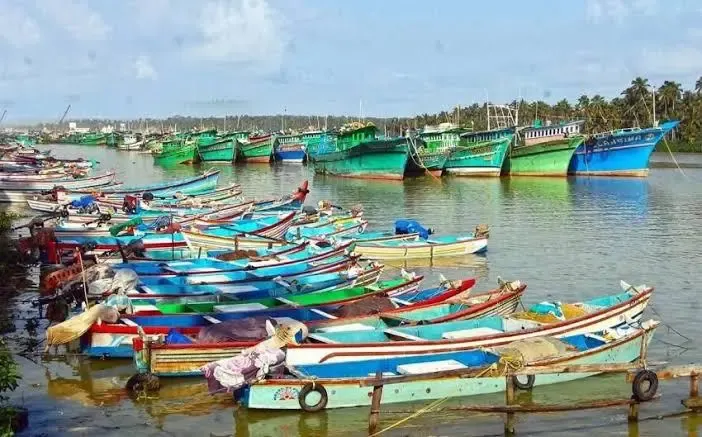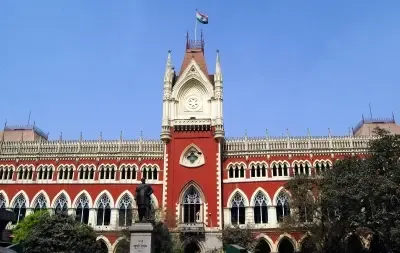Breeding Season: 61-Day Fishing Ban to Commence in Tamil Nadu on April 15

Synopsis
Key Takeaways
- 61-day fishing ban begins April 15
- Aims to conserve marine resources
- Applies to mechanised fishing boats only
- Financial aid of Rs 8,000 per month for fisher families
- Expected impact on fish supply and market prices
Chennai, April 13 (NationPress) The annual 61-day fishing ban along the eastern coastline of Tamil Nadu is set to begin on April 15, with the goal of conserving marine resources and safeguarding fish breeding during the spawning season. This prohibition will remain active until June 14, inclusive of both dates, and applies to all mechanised fishing vessels, including trawlers.
As large-scale fishing operations come to a halt, the state anticipates a decline in fish availability, which may lead to an increase in market prices. Fisheries officials have cautioned that the repercussions on fish supply may become evident in the upcoming weeks. Ramanathapuram District Collector Simranjeet Singh Kahlon has mandated that all mechanised vessels must be docked at their respective jetties by midnight on April 14. During the ban, fishermen are expressly forbidden from entering the sea.
According to officials from the Fisheries Department, the period from April to June signifies the peak breeding season for fish in the Palk Strait. This ban, enacted under the Tamil Nadu Marine Fishing Regulation Act of 1983, aims to facilitate the regeneration of marine life and the replenishment of fish stocks.
The fishing ban is projected to significantly influence the operations of thousands of mechanised boats throughout coastal Tamil Nadu. In Rameswaram alone, over 700 mechanised boats will be docked. Across the Ramanathapuram district, which includes vital fishing hubs such as Pamban, Mandapam, Ervadi, Keelakarai, Thondi, Soliyakkudi, and Mookaiyur, more than 2,000 boats will remain grounded during this period.
Despite Sunday being the last day for permitted fishing activities, numerous fishermen opted to stay ashore due to concerns regarding potential arrests by the Sri Lankan Navy. Consequently, hundreds of boats were already seen anchored at Rameswaram harbour.
To support their livelihoods during the ban, many local fishermen migrate temporarily to states like Kerala and Karnataka to continue fishing in the Arabian Sea.
It is important to note that the ban exclusively affects mechanised and trawl boats. Traditional country boats and small-scale fishermen are allowed to operate throughout this period. To assist the fishing community during the seasonal hiatus, the Tamil Nadu government offers financial aid of Rs 8,000 per month to each registered fisher family, up from Rs 5,000, providing an additional Rs 3,000 to help families meet their essential needs. This ban will disrupt regular fishing activities in 14 coastal districts of Tamil Nadu.
Officials predict that approximately 1.90 lakh fishermen will benefit from this financial assistance during the two-month period.
Meanwhile, fishermen in areas such as Thoothukudi, Vembar, and Tharuvaikulam, who traditionally avoid fishing on Sundays, also chose to remain ashore, contributing to calm seas on that day, according to local authorities.









